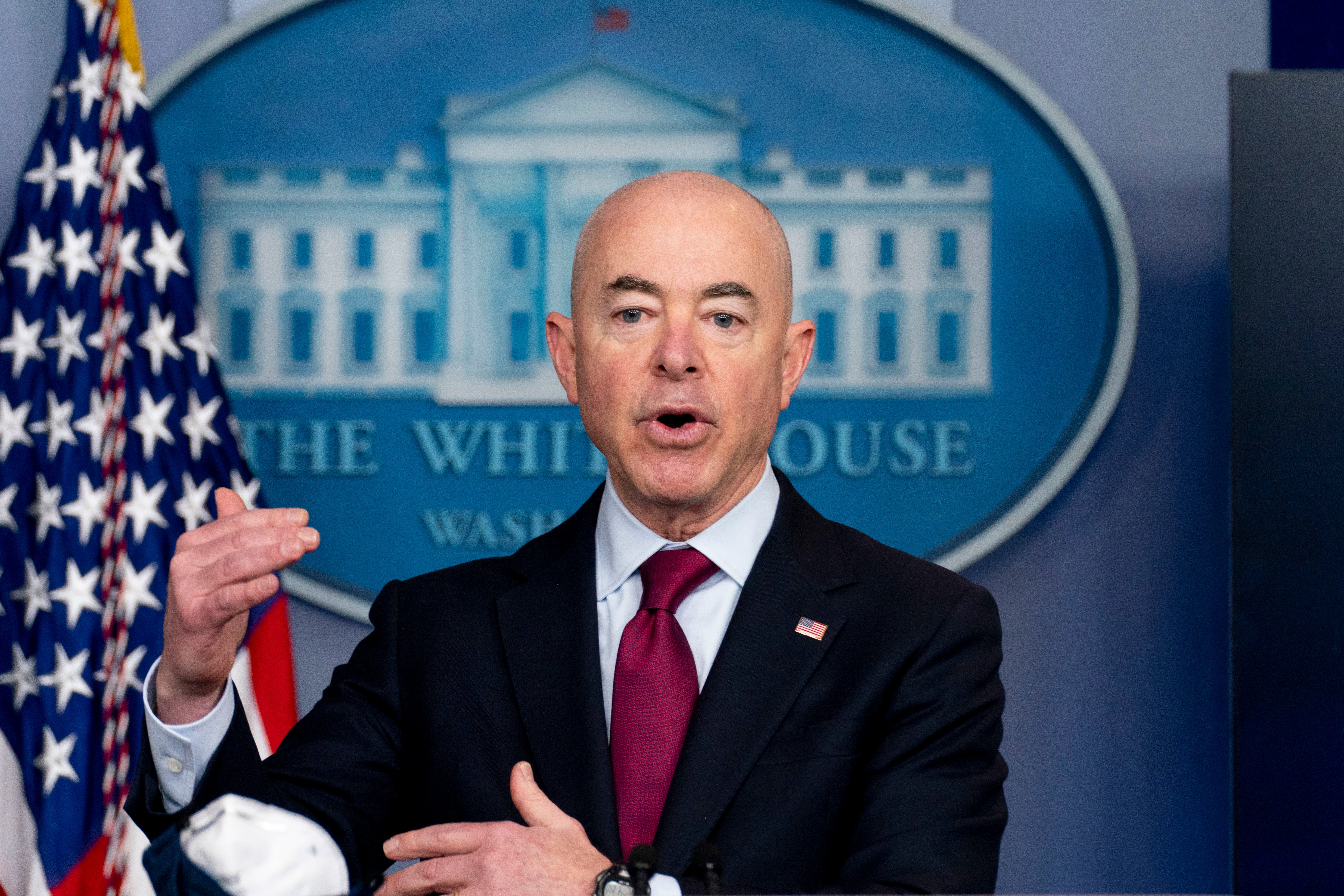US begins reuniting some families separated at Mexico border
The Biden administration says four families that were separated at the Mexico border during Donald Trump’s presidency will be reunited in the United States this week

Your support helps us to tell the story
From reproductive rights to climate change to Big Tech, The Independent is on the ground when the story is developing. Whether it's investigating the financials of Elon Musk's pro-Trump PAC or producing our latest documentary, 'The A Word', which shines a light on the American women fighting for reproductive rights, we know how important it is to parse out the facts from the messaging.
At such a critical moment in US history, we need reporters on the ground. Your donation allows us to keep sending journalists to speak to both sides of the story.
The Independent is trusted by Americans across the entire political spectrum. And unlike many other quality news outlets, we choose not to lock Americans out of our reporting and analysis with paywalls. We believe quality journalism should be available to everyone, paid for by those who can afford it.
Your support makes all the difference.The Biden administration said Monday that four families that were separated at the Mexico border during Donald Trump s presidency will be reunited in the United States this week in what Homeland Security Secretary Alejandro Mayorkas calls “just the beginning” of a broader effort.
Two of the four families include mothers who were separated from their children in late 2017, one Honduran and another Mexican, Mayorkas said, declining to detail their identities. He described them as children who were 3 years old at the time and “teenagers who have had to live without their parent during their most formative years”
Parents will return to the United States on humanitarian parole while authorities consider other longer-term forms of legal status, said Michelle Brane, executive director of the administration's Family Reunification Task Force. The children are already in the U.S.
Exactly how many families will reunite in the United States and in what order is linked to negotiations with the American Civil Liberties Union to settle a federal lawsuit in San Diego but Mayorkas said there were more to come.
“We continue to work tirelessly to reunite many more children with their parents in the weeks and months ahead,” Mayorkas told reporters ahead of the announcement. "We have a lot of work still to do, but I am proud of the progress we have made and the reunifications that we have helped to achieve this week.”
More than 5,000 children were separated from their parents during the Trump administration going back to July 1, 2017, many of them under a “zero-tolerance” policy to criminally prosecute any adult who entered the country illegally, according to court filings. The Biden administration is doing its own count going back to Trump's inauguration in January 2017 and, according to Brane, believes more than 1,000 families remain separated.
While family separation under “zero-tolerance” ended in June 2018 under court order and shortly after Trump reversed course, Biden has repeatedly assailed the practice as an act of cruelty. An executive order on his first day in office pledged to reunite families that were still separated “to the greatest extent possible.”
The reunifications begin as the Biden administration confronts the third major increase in unaccompanied children arriving at the border in seven years. It has made strides moving children from grossly overcrowded Border Patrol facilities to U.S. Department of Health and Human Services shelters, which are more suited to longer-term stays until children are placed with sponsors in the United States, typically parents or close relatives.
The average stay for an unaccompanied child in Border Patrol custody has plummeted to about 20 hours, below the legal limit of 72 hours and down from 133 hours in late March, Mayorkas said. There are 677 unaccompanied children in Border Patrol custody, down from more than 5,700 in late March.
Health and Human Services opened 14 emergency intake centers, raising capacity to nearly 20,000 beds from 952 when the Federal Emergency Management Agency was dispatched March 13, Mayorkas said. About 400 asylum officers from U.S. Citizenship and Immigration Services have been assigned as case managers to speed the release of children to sponsors. As of Thursday, Health and Human Services had 22,557 children in its care.